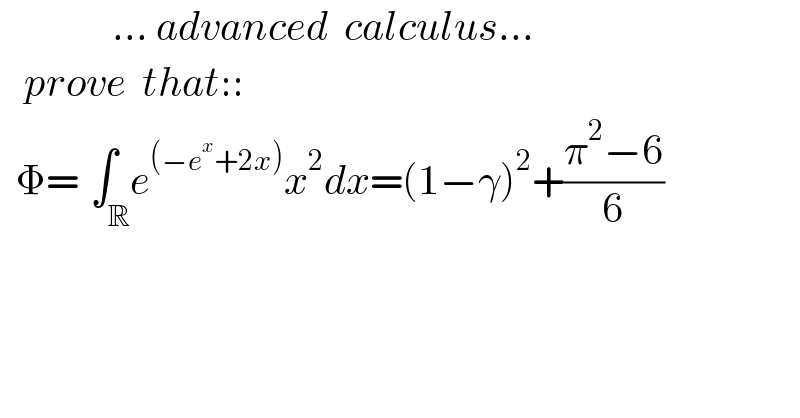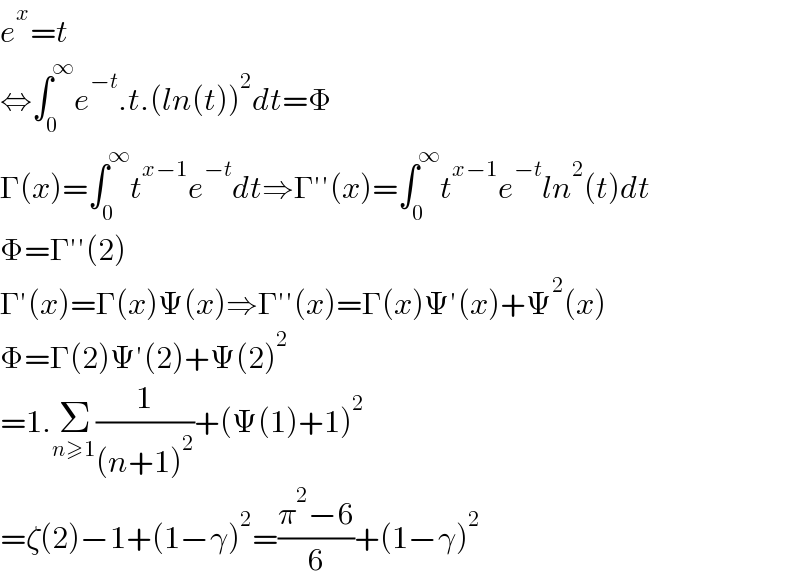
Question and Answers Forum
Question Number 130011 by mnjuly1970 last updated on 21/Jan/21

Answered by mindispower last updated on 21/Jan/21

Commented by mnjuly1970 last updated on 21/Jan/21

Answered by mindispower last updated on 22/Jan/21

Commented by mnjuly1970 last updated on 22/Jan/21

Commented by mindispower last updated on 23/Jan/21

